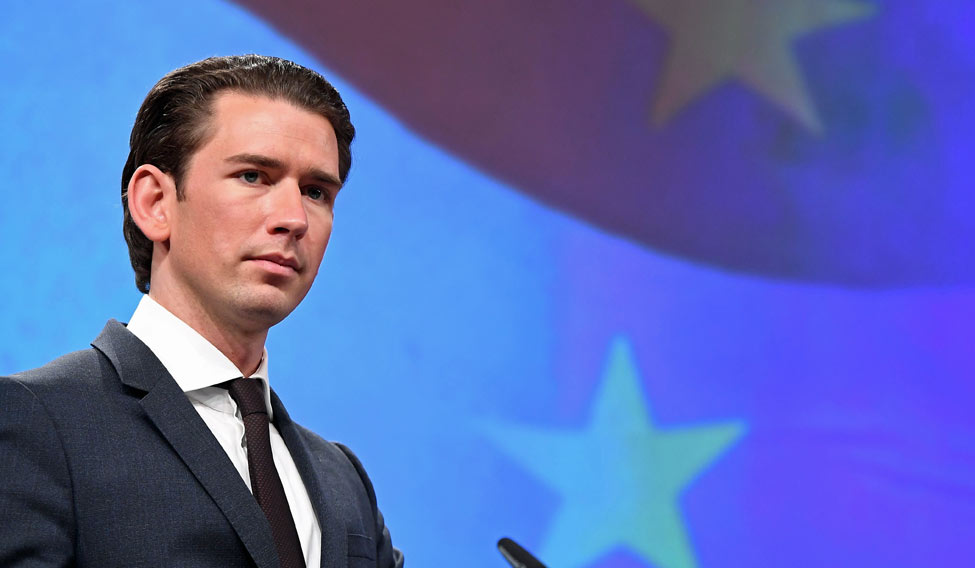The first time the far right Freedom Party of Austria was part of a ruling coalition in Vienna was in 2000. The FPO, which finished the 1999 parliament elections marginally ahead of the centre right People's Party (OVP), entered into an alliance with them to stop the Social Democrats who topped the elections. However, on the day the new government was set to take charge, there were massive demonstrations in Vienna and would-be ministers had to take a tunnel from the chancellery to the presidential palace to avoid their wrath. The world, too, reacted strongly, some countries downgraded ties with Austria, Israel recalled its ambassador, accusing the FPO of anti-Semitism. Nearly two decades later, the FPO, a party launched by the erstwhile Nazis, once again became a part of a ruling coalition with the OVP. The new cabinet was sworn in on December 18. This time, the protests were muted, nothing that the local police could not manage. And, the EU thought it prudent to welcome the new government.
The muted protests show the mainstreaming of right wing groups across Europe, especially in Austria. In the parliament elections held in October, the OVP under Sebastian Kurz won 32 per cent of the votes to emerge as the single largest party. The FPO finished third behind the ruling Social Democrats. Kurz, 31, conducted two months of intense negotiations with the FPO led by Heinz Christian Strache and sealed a deal to form a coalition. He took over as federal chancellor, the youngest head of government in the world, on December 18, and, in the process, brought back the far right once again into the national mainstream.
The FPO experiment could well be a litmus test for right wing movements across Europe. Under Kurz, nicknamed wunderwuzzi (wonder boy), the OVP has shifted considerably to the right so it was natural for him to ally with the FPO. After the elections, FPO leaders, in fact, charged Kurz with stealing their agenda on a range of issues like national security and migration. The right wing parties have been gaining in popularity across Europe. The National Front came second in the French presidential elections early in the year, the Alternative for Deutschland made astonishing gains in Germany, and now, the FPO is part of the government in Austria.
Under its alliance with the OVP, the FPO will be in charge of defence, interior and foreign ministries, giving it complete control over security policy. In return, Strache has agreed to rein in his criticism of the European Union and the euro and has pledged support to the economic agenda of the OVP, including keeping the national debt under check. Under the FPO, migrants, refugees and asylum seekers will be subject to stricter background checks and evaluations. For instance, the FPO plan proposes to confiscate the mobile phones of refugees to verify their identity and travel routes. Anything suspicious will result in immediate expulsion. It also proposes to confiscate cash carried by refugees and add it to a common pool to support them. The new policy even waives off privacy rights of the refugees, including about their medical records and stipulates that they will not be given private accommodation. It also sets tough standards of integration, making it mandatory for the immigrants to learn German, imbibe Austrian values and admitting children in state run schools only after they pick up required proficiency in German. The policy makes it illegal to accept foreign donations for building mosques and madrassas and proposes to strictly monitor what is being taught in madrassas.
Kurz and Strache could get away with such promises because of the marked right turn taken by the Austrian voters. The 2015 refugee crisis played into the hands of the far right as ordinary Austrians found it difficult to digest an influx of a large group of people into their country, who spoke a different language, practiced a different religion and above all, belonged to a different value system. The inept manner in which the Austrian government addressed their concerns made many of them shift to the right.
The right wing made use of the situation with promises to take a tough stand on immigration, cut welfare spending for refugees and crack down on radical Islam. And, it worked. It could well be a model for other right wing groups as well. In the long run, it could pose a threat to the future of the European Union as most right wing groups are fundamentally Eurosceptics and ultranationalists. The mainstreaming of the far right could therefore possibly mark the beginning of the end of the multicultural European project.






